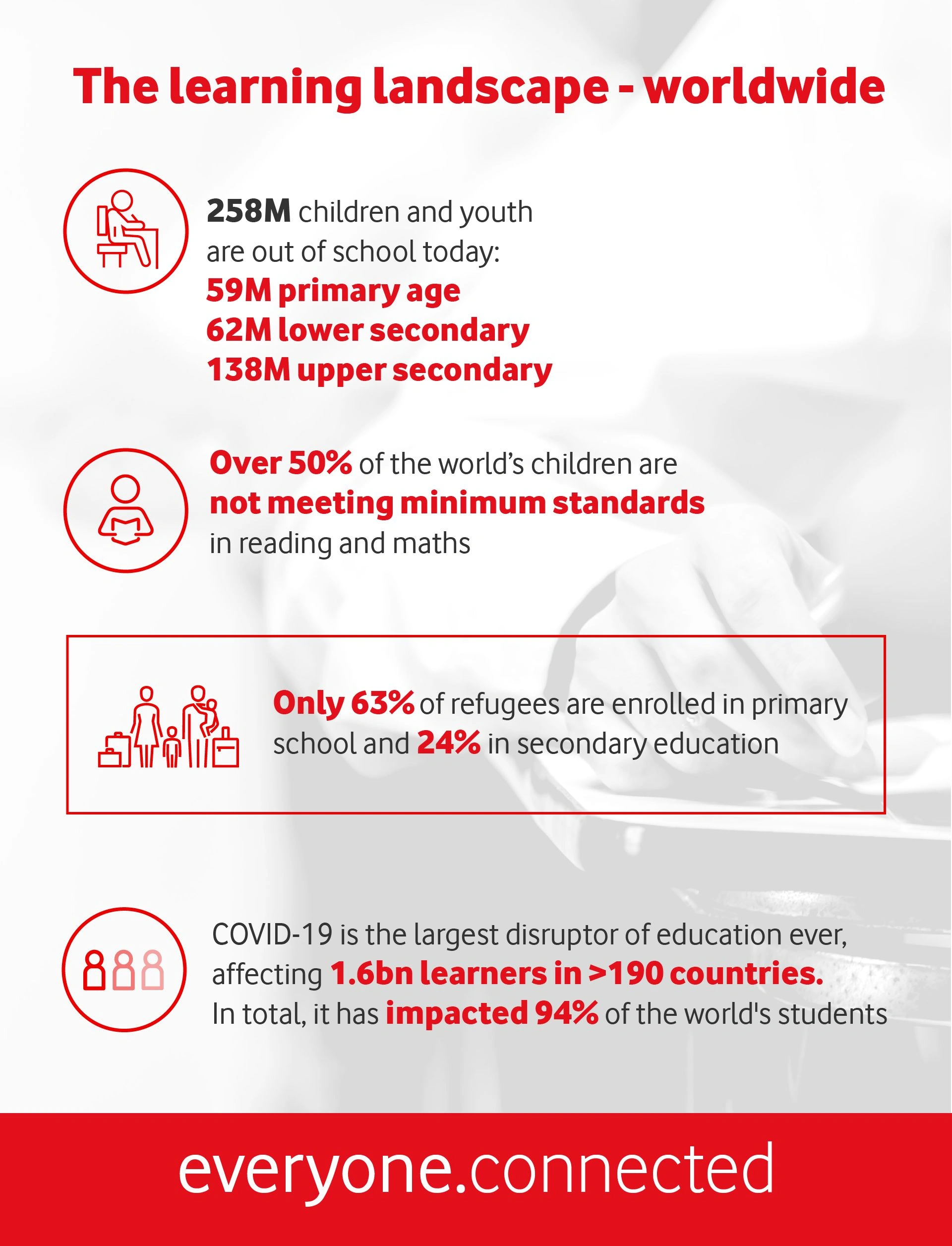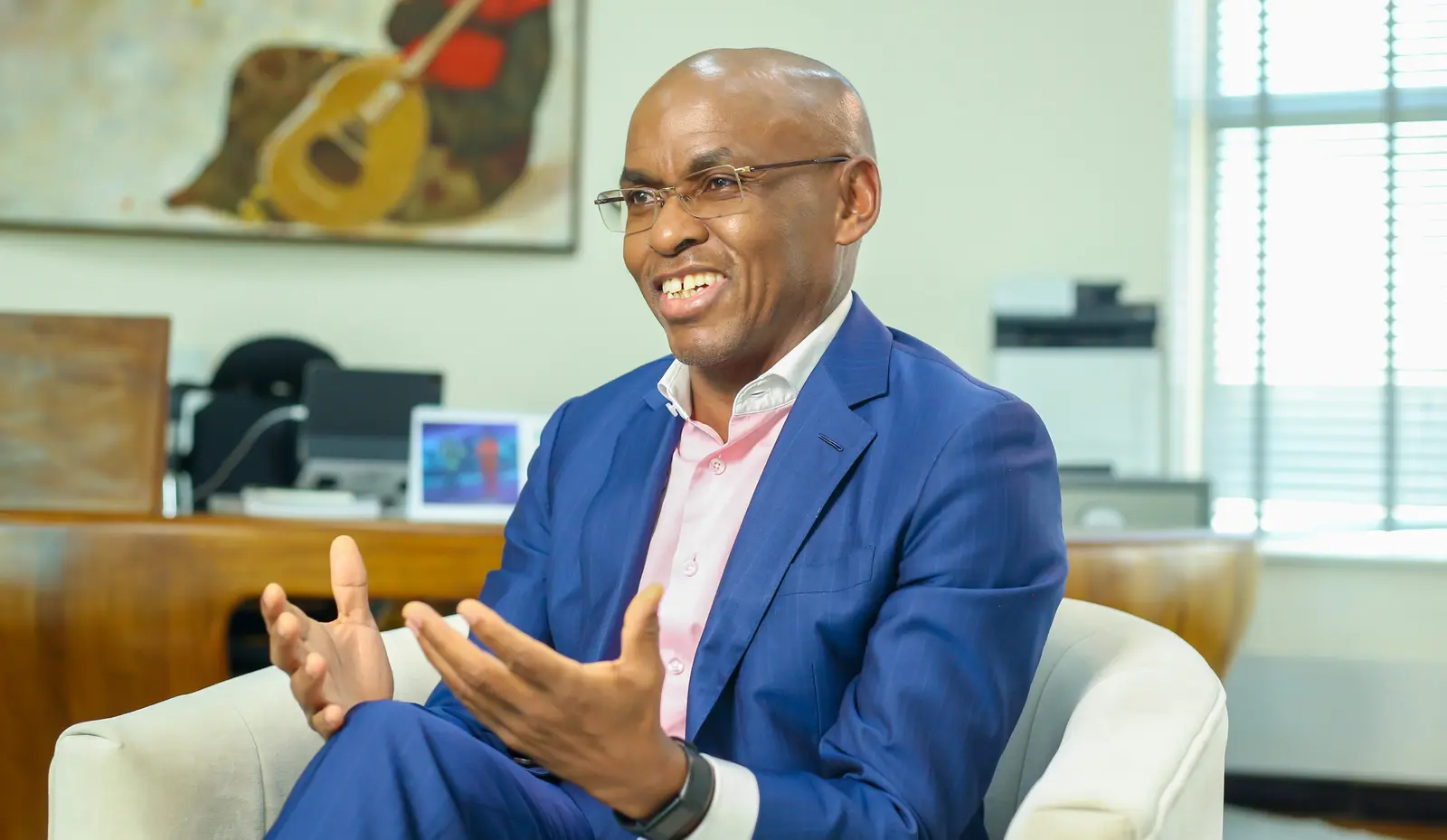Even before the COVID-19 pandemic, an estimated 258 million children around the world were not in school. More than half of children globally were not meeting the minimum expected standards in reading and maths.
These problems were made worse by the coronavirus crisis, affecting nearly 1.6 billion learners in more than 190 countries. School closures around the world impacted 94% of students. Never before in living memory had so many children been without basic structured education.

Education is a key area of focus for the United Nations (UN) in its Sustainable Development Goals. The UN has set a target to ensure all children have access to free, equitable and quality education by 2030. But achieving this goal will be challenging, particularly for regions which lack the infrastructure to sustain and support even a basic education system.
Technology will play a vital role in overcoming these barriers, enabling teachers and students – wherever they’re located – to access the tools, resources and support they need for a quality education.
How technology can make education accessible for all
Coronavirus lockdown measures led to school closures around the world. This highlighted the urgent need for more resilient, digital-first education systems that enable students to learn from home.

The shift to digital education has been profound. As an example, Vodacom’s e-school - a free digital learning platform with over 1.2 million subscribers in South Africa - attracted more than 100,000 new student registrations in March 2020 alone. The platform went from hosting an average of 40,000 student events each day to a peak of close to 150,000.
The e-school platform is zero-rated for Vodacom customers, meaning all content is available for free with no data charge.
In addition, Vodafone zero-rated education sites and donated devices for educational purposes across its markets, while also offering customers a free six-week subscription to online e-learning courses from Udemy, and Perlego’s online library of over 300,000 academic textbooks and publications.
Vodafone’s Connected Education programme, developed in partnership with Microsoft, is an integrated end-to-end learning solution currently benefitting 360,000 subscribers in 66 educational institutes in Tanzania and South Africa. It provides access to technology for students, teachers and schools, and enables teachers to host lessons in or outside of the classroom and use interactive tools.
While the crisis has caused significant disruption to traditional schooling methods, the increased availability and adoption of digital learning tools has shown just how powerful technology can be in enabling access to education for many.
Supporting the development of digital skills
However, many schools and homes were simply not prepared for this scale of disruption. Schools were forced to move quickly; the outcome for many was a hurried, inconsistent approach to digital learning. For example, research has suggested that in Europe 70% of teachers were experiencing online teaching for the first time and only 6% had extensive prior experience in this area.
Providing access to online educational resources is only part of the solution; students and teachers need to have the digital skills to use them.
To support digital skills learning for young people and teachers, Vodafone Foundation’s Generation Next programme in Greece is helping students aged 12–18 to learn more about STEM topics, while creating their own innovative projects that bring solutions to social problems. More than 78,500 students and teachers have been involved.
In Germany, Vodafone’s Coding For Tomorrow programme, supported by the State Minister for Digitisation, aims to give students in primary and secondary schools a fundamental understanding of digital technologies. The programme has helped over 85,000 young people learn how to code and provided more than 1,300 teachers with specific training so far.
While technology can enable fast and wider access to educational tools and resources, it is equally important to that works in tandem with the learning and development of digital skills for the future.
Reaching the most vulnerable students
For refugee children, the challenge is even greater. Before the pandemic, refugees were twice as likely to be out of school as other children, with only 63% enrolled in primary school and 24% in secondary education. Ensuring the most vulnerable are also part of the shift to digital education is essential.
Since 2013, Vodafone Foundation and UNHCR, the UN Refugee Agency, have established 36 Instant Network Schools across eight refugee camps in Africa, benefitting 86,500 refugee students and 1,000 teachers to date. The programme provides access to digital learning content and the internet, improving the quality of education in some of the most marginalised communities in Africa.
The programme has been shown to increase digital skills for 61% of students and 125% of teachers, improving student confidence, motivation and academic performance. It has also led to higher levels of school attendance, with examples of young people accessing tertiary education from within refugee camps for the first time.
Instant Network Schools is a prime example of how investments in digital technology can help accelerate the number of students able to access education. The programme is now expanding through a €26 million joint investment with Vodafone Foundation and UNHCR to reach 500,000 young refugees and their communities by 2025.
Building for the future
Every child and young person should have access to a quality education. Digital solutions exist today that can make this a reality for millions of students around the world.
It is vital that governments continue working in partnership with educational institutions and the private sector to drive digital innovation in education. The spotlight needs to be on improving digital skills for young learners and their teachers, as well as overcoming the various barriers to accessing education, such as resilient networks and affordability of tech devices. Only then can we start to truly build digital education systems that are equal and accessible for all.
Find out more about our work to keep everyone.connected.

























